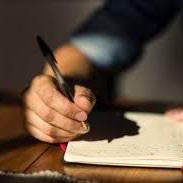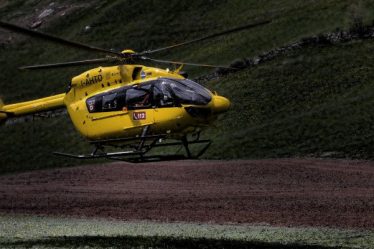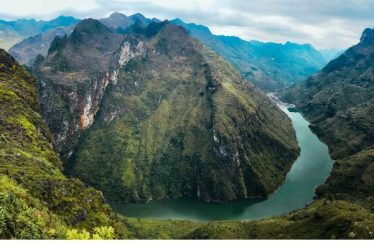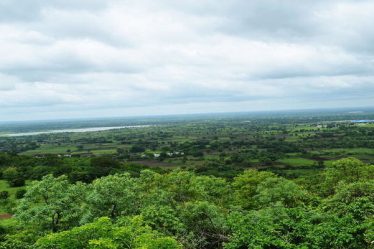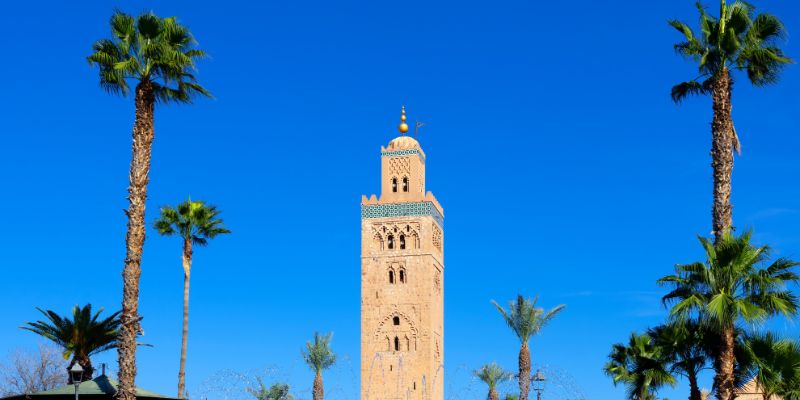
Morocco, with its vibrant culture, stunning landscapes, and bustling markets, can be a captivating destination. However, venturing without preparation can lead to confusion and missed opportunities. Imagine struggling to communicate due to a language barrier, facing unexpected currency exchange rates, or even realizing you need a visa upon arrival. I understand that planning a smooth and enjoyable trip is vital. I’ve meticulously created this “must-see guide” for travel to Morocco.
Do I Need A Visa For Travel To Moracco?
Whether you need a visa to travel to Morocco depends on your nationality. Citizens from the UK, Australia, New Zealand, Canada, the US, and other EU countries don’t need a visa for stays up to 90 days, but their passport must be valid for at least six months beyond the entry date. Morocco offers several visa types for others:
Short validity visa (Tourist visa) – Available as single or multiple entry for 1 to 90 days.
Long validity visa – For longer stays, it is issued as multiple entries valid for 1 to 90 days within one year. For stays over 90 days, apply for long-term residency.
Transit visa – For travelers passing through Morocco, allowing a stay of up to 72 hours.
Visa issued at the border – For special cases by Morocco Security Services.
An eVisa is the quickest option. Just visit the official Morocco e-Visa system website and follow a streamlined process.

Morocco eVisa requires a passport, completed application form, return/onward ticket, accommodation proof, and proof of financial means (minimum 70 EUR). Additional documents may vary based on nationality and residency. Apply via the official Morocco e-Visa website. However, I recommend consulting the latest Morocco travel advisory for up-to-date information regarding visas and entry requirements.
What Should I Pack for My Travel to Morocco?
For your Morocco trip, pack essential documents, including your passport, visa (if required), vaccination records, flight tickets, travel insurance details, and copies of essential documents emailed to yourself. Luggage should be manageable; a backpack or a bag with wheels and straps is ideal. Include a daypack for essentials.
For clothing, opt for easy-to-wash and quick-drying items. Women should pack knee-covering skirts and scarves for religious sites. Avoid military-style clothing. Include practical shoes, light and warm layers, swimsuits, and evening dress clothes.
Regarding health and hygiene, bring sunglasses, sunscreen (SPF 25+), insect repellent, personal medication, and a basic first aid kit. Pack your camera, phone, chargers, adapters, and any reading devices for electronics.
Ensure you have enough cash and a secure way to carry it. If camping, include a travel pillow, a sleeping bag suitable for 3 seasons, and a personal mattress. Prepare for wet weather with waterproof gear; consider an eye mask and earplugs for sleeping comfort. Also, don’t forget to pack toiletries, a small mirror, and a mobile phone with international roaming.
What Is The Best Currency To Take To for Moracco Travel?
The best currency to take to Morocco is euros, as they are the easiest foreign currency to exchange and are often accepted for payment. However, paying in the local currency, the Moroccan dirham is recommended for better deals.
Credit cards are less commonly accepted, so carrying dirhams for most transactions is advisable. When withdrawing cash from ATMs, always opt to be charged in Moroccan dirhams to avoid unfavorable exchange rates.
The dirham is a closed currency, meaning it can only be obtained within Morocco, with an allowance to bring in or take out up to 1000Dh. It’s wise to carry around £200 in cash, exchanging some upon arrival for immediate needs and saving the rest for emergencies while being cautious of pickpockets.
How Do I Change The Currency In Morocco?
To exchange currency in Morocco, avoid illegal street transactions and use an official Bureau de Change, recognizable by a golden sign. Ensure any paper currency (U.S. Dollars, British Pounds, Euros, etc.) you bring is in good condition, without tears or ink marks. Bureaus de Changes are readily available in tourist areas and major airports like Tangier.
For convenience, you can order Moroccan dirhams through services like NatWest, which offers delivery to your door, or Click & Collect options from Eurochange branches.
What Is The Best Way To Get Around Morocco?
The best way to get around Morocco depends on your time, budget, and preferences. Flying with carriers such as Royal Air Maroc or Air Arabia can save time on long distances, but consider the environmental impact. For city travel, petit taxis are convenient and affordable, with fares metered to avoid overcharging.
For longer distances between cities, shared grands taxis are best, or you can rent the whole vehicle for comfort. Morocco’s train network, including the high-speed Al Boraq, links major cities efficiently and comfortably, while buses serve more expansive areas with luxury service options.
For adventurous travelers, motorcycling across Morocco unveils a unique picture of the country’s diversity. Always check vehicle conditions, have comprehensive insurance, and consider local driving customs for a safe journey.
How Do You Find Accommodation When Traveling To Morocco?
When looking for accommodation in Morocco, you have various options to suit your budget and preferences. Hostelbookers.com is a good starting point for budget-friendly dorm-style rooms and private suites in significant cities. If you want a more unique stay, consider staying in a traditional Riad house with rooms surrounding a courtyard.
Hotels range from basic, unclassified options in the historic Medinas to luxury accommodations. The prices of these hotels can vary widely depending on the season and the amenities they provide. Classified hotels with seasonal pricing are usually found in the newer parts of cities. On the other hand, unclassified hotels are the most budget-friendly options but come with varying levels of quality.
For an adventure, camping and experiencing a hammam can give you a taste of local life. There are campsites throughout Morocco and hammams for traditional steam baths.
What Should I Eat And Drink When Traveling To Morocco?
When traveling to Morocco, you can try the country’s rich cuisine. Start your day with pastries, pancakes, fresh fruit, and freshly squeezed juice. Snack on dried fruits, nuts, olives, and goat cheese with just-baked khobz (bread) from the souq.
Must-try dishes include B’ssara, Tagine, Fish chermoula, Harira, Kefta tagine, Couscous, Makouda, and Zaalouk. Don’t miss trying Tanjia in Marrakech, Chicken pastilla, freshly caught fish, and Morocco’s signature mint tea, served as a gesture of hospitality.
How Can I Stay Connected When Traveling To Morocco?
To stay connected when traveling to Morocco, your phone must be unlocked before departure to use a local SIM card. Morocco’s leading cell phone networks, such as Meditel, Maroc Telecom, and Inwi, have excellent coverage, especially in urban areas.
4G is widely available in major cities. To avoid roaming charges, purchase a local SIM card from Orange, Maroc Telecom, or INWI upon arrival at the Airport. Simply insert the SIM card into your unlocked phone for reliable connectivity throughout your trip.
How Can I Stay Healthy When Traveling To Morocco?
To stay healthy while traveling in Morocco, it’s vital to prioritize hygiene and safe eating habits. Drink only bottled or purified water, and use alcohol-based hand sanitizer when handwashing facilities are unavailable. Be cautious about street food and opt for hot-cooked foods to minimize the risk of foodborne illnesses.
Additionally, ensure you have hepatitis A and B, rabies, typhoid, and tetanus vaccinations to protect against common diseases in the region. When dining out, always choose bottled water over tap water and inquire about the hygiene standards of food establishments.
How Much Money Will I Need For A Week In Morocco?
A budget traveler can expect to spend approximately $40 to $60 per day, covering accommodation, food, transportation, and activities. Meanwhile, a mid-range traveler might allocate around $80 to $120 daily for a more comfortable experience. In terms of currency, aiming to have around £40-£50 per person per day (£280-£300 per week) should suffice.
How Many Days In Morocco Is Enough?
For a meaningful experience and to cover Marrakech, Fes, Essaouira, and the Sahara Desert, a minimum of 7-10 days is recommended. For a more comprehensive trip to fully appreciate Morocco’s culture, plan to spend at least 2 to 3 weeks.
Is It Safe To Travel To Morocco Right Now?
Morocco is generally considered safe for travelers. The country has a level-2 safety rating from the U.S. State Department due to COVID-19 and the potential for terrorism. Street attacks and thefts occasionally occur, particularly in quiet areas and after dark. Travelers, especially women, should exercise caution and avoid carrying large amounts of money or valuables.

Moreover, female travelers may receive unwanted attention from men, so it’s advisable to dress modestly and remain vigilant.
Travel Moracco – Conclusion
This complete guide will prepare you for your Morocco trip. Before setting off on your first Moroccan adventure, preparing adequately is crucial. Therefore, learn about visa requirements, packing tips, currency exchange, transportation, accommodation, dining, staying connected, health precautions, and budgeting.
Morocco has a vibrant culture, stunning scenery, and great hospitality. Accept the unexpected, treat conversations with respect, and make lasting memories during your Moroccan adventure.
